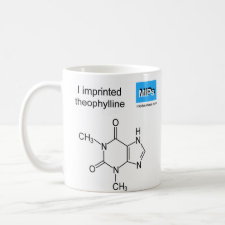
Authors: Troļani D, Dion JR, Burns DH
Article Title: Ultrasonic quantification using smart hydrogel sensors.
Publication date: 2011
Journal: Talanta
Volume: 83
Issue: (5)
Page numbers: 1371-1375.
DOI: 10.1016/j.talanta.2010.11.009
Alternative URL: http://www.sciencedirect.com/science/article/B6THP-51FNP78-1/2/1f7be27f2f3a2f24030164b4690b573c
Abstract: Analyte quantification in samples with extensive matrix effects can be challenging using conventional analytical techniques. Ultrasound has been shown to easily penetrate samples that can be difficult to measure optically or electrochemically, though it provides little chemical information. Recent ultrasound contrast agents provide highly localized contrast within a sample based on concentration. We have developed a general approach for creating smart biosensors based on molecularly imprinted hydrogel polymers that recognize and bind a target analyte, changing ultrasonic properties with analyte concentration. Multilinear analyte calibration in hydrogel solutions provided quantification of the chosen analyte, theophylline, from 8.4 μM to 6.1 mM with a high degree of linearity (correlation coefficient exceeding 0.99). Simultaneous quantification of both theophylline and of an interfering species, caffeine, was also carried out, providing an avenue for simultaneous analyte analysis with one smart biosensor that can be dispersed and remotely detected
Template and target information: theophylline
Author keywords: Ultrasound, hydrogel, molecular imprinting, biosensor, Analyte recognition



Join the Society for Molecular Imprinting

New items RSS feed
Sign-up for e-mail updates:
Choose between receiving an occasional newsletter or more frequent e-mail alerts.
Click here to go to the sign-up page.
Is your name elemental or peptidic? Enter your name and find out by clicking either of the buttons below!
Other products you may like:
 MIPdatabase
MIPdatabase









